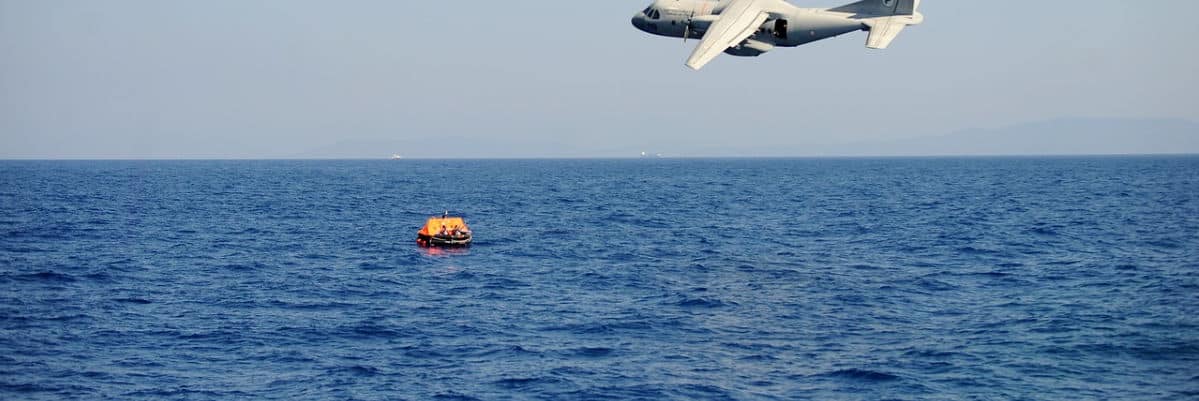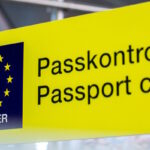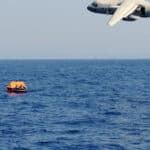Background
Smuggling, i.e., the illegal introduction of migrants into the territory of a state, and trafficking, i.e., sexual or economic exploitation in slavery-like conditions, are based on the intensive exploitation of the migrant already during the journey and certainly at the end of it.
Criminal organizations are now showing remarkable adaptability in the management of flows, diversifying routes, stages and means, using vessels of various types and sizes, regular ferries and airline flights in relation to the type of victims' ethnicity or for strategic choices such as circumventing controls or pressuring for rescue interventions with NGO vessels, covered or colluding with the smugglers, their own flag states and their financiers.
These criminals are involved in perpetrating other illicit activities, from drug trafficking to crimes such as rape, extortion, robbery or fraud. There is no shortage of moving unlawful earnings abroad, using couriers and banned systems to collect and send money.
Trafficking in human beings requires more complex action than what has been implemented so far; it is not enough to relegate it solely to the competencies of the Ministry of the Interior. The Schengen Agreements, the UN Palermo Convention, the United Nations Law of the Sea (UNCLOS) and the Italian Code of Navigation provide the rules for border management and controls to be carried out for those arriving in Europe. Italy has signed up to procedures for entry visas, protection of asylum seekers and repatriation of those not entitled to stay in the Schengen area. Every day at European airports hundreds of non-EU nationals, not in good standing with their visas, are sent back on charge of the airlines that transported them to Europe.
Specifically, Article 92 of the Schengen Treaty regulates cooperation between the contracting states on external border control. It provides that:
- states should cooperate with each other and with the European Commission to ensure the proper implementation of the Treaty provisions on external border controls;
- states shall take the necessary measures to prevent illegal immigration, to control the entry and exit of third-country nationals, and to combat cross-border crime;
- states could take temporary measures to reintroduce internal border controls in the event of a serious threat to public order or internal security, as France and Austria have repeatedly done to limit migration flows from Italy;
- states shall coordinate their visa and asylum policies as well as ensure cooperation among their competent authorities in these areas.
The Schengen Treaty provides for rejection at the border (Refusal of Entry) when an individual who presents himself at an airport, sea or land gate does not meet the necessary requirements for entry into the Schengen area. There are several reasons why a person is refused entry at the Schengen border, including:
- do not possess travel documents (such as a passport) or a valid visa for all non-European countries that are not visa-free;
- being unable to demonstrate the purpose of the trip or sufficient financial resources for the planned stay;
- be considered a threat to public safety or public order in Schengen countries (there is a European database called SIS II);
- having an entry ban issued in one of the Schengen countries.
It is also necessary to promote common European principles based on parameters and requirements shared by all European states for the granting of citizenship (so-called "naturalization") to non-EU citizens. Indeed, the effects that national policies for the recognition of citizenship can generate do not only have consequences within the state that adopted them, but have impacts in all states that are parties to the Schengen Treaty. Anyone who acquires the nationality of a Schengen state automatically acquires "citizenship" of the Schengen area; hence, the freedom to move throughout Europe.
Over the years, this has caused tensions with those states that, having adopted very generous welfare policies for their citizens, have also become a magnet for those "new EU citizens" who have moved to their state to seek work and welfare benefits. Pending the establishment of common naturalization policies, it would be advisable, before adopting national laws on the granting of citizenship (in any capacity) to non-EU citizens, to consult the other states participating in the Schengen Treaty to also acquire their views on the naturalization policies to be adopted.
Therefore, the first question is whether the current European treaties and agreements are sufficient or, instead, whether joint action is needed that can provide integrated and homogeneous responses valid throughout the Schengen area, including for those coming from the sea who are not in compliance.
Proposal
Having now recognized the nexus between modern slavery, human trafficking and the resulting illegal immigration, the strategic line to be pursued must have the ability to use all instruments of national and international power, from diplomatic to military, from domestic to economic, from intelligence to sanitary. What is needed is the competent and determined action of a special appointee dedicated to this one task.
The EU, upon the proposal of the Italian government, shall therefore appoint a Commissioner of a special nature and with sectorally defined competence, with military and diplomatic experience in the Maghreb, knowledge of Sicily and southern Italy, languages and international maritime and sectoral regulations, with the objective of defeating human trafficking and mitigating illegal immigration, according to the guidelines deliberated by the EU Council and implemented by the European Commission. The Special Commissioner, endowed with the necessary immunities and allowances normally adopted for European Commissioners or Heads of Special Assignments, is to have the delegated authority to deal with cooperation with transit states, particularly in strengthening the surveillance and control of their borders and joint patrolling between local and European forces in their territorial waters, with spending capacity, power and ability to cope with special needs for the direction and coordination of several national and European administrations.
The EU should issue a political resolution, set the objectives and tasks, means, funds, waivers and personnel granted as well as the duration of the office. Let the provision of personnel and support systems to Schengen countries exposed to frontline migration flows be defined. Let it be ensured that the costs incurred for the management of the migratory phenomenon are covered to be distributed among all 31 Schengen Treaty states (EU and non-EU member states) according to the proportional shares already defined. That the Special Commissioner involve specific UN organizations and voluntary associations and all NGOs working in Africa, Pakistan in Bangladesh and in the various Asian countries from which migratory flows originate so that they carry out actions that protect migrants from human traffickers, including ensuring the management of hotspots in Africa with European forces.
The Union Representations in states outside Europe should be strengthened for greater coordination of legal migration in Europe. The Special Envoy should enter into agreements on behalf of the EU with states from which migration flows originate to allow immediate returns of those migrants who do not have the right to remain in the Schengen area. These agreements, if not complied with or if the cooperation of these states to accept back their nationals should fail, should provide for restrictive consequences on the issuance of visas for nationals of that country, on the disbursement of European development funds, and if necessary on trade and military agreements with EU member states.
Space should be given to responsible and competent people who are determined to safeguard the interests of the European Union and its member states.
Senior Fellow of the Centro Studi Machiavelli. Admiral of division (res.), former commander of destroyers and frigates, he has held important diplomatic, financial, technical and strategic assignments for the Defence and Navy Chiefs of Staff, both at home and abroad, at sea and on land, pursuing the application of capabilities aimed at making the Italian defence and security policy effective.









Scrivi un commento